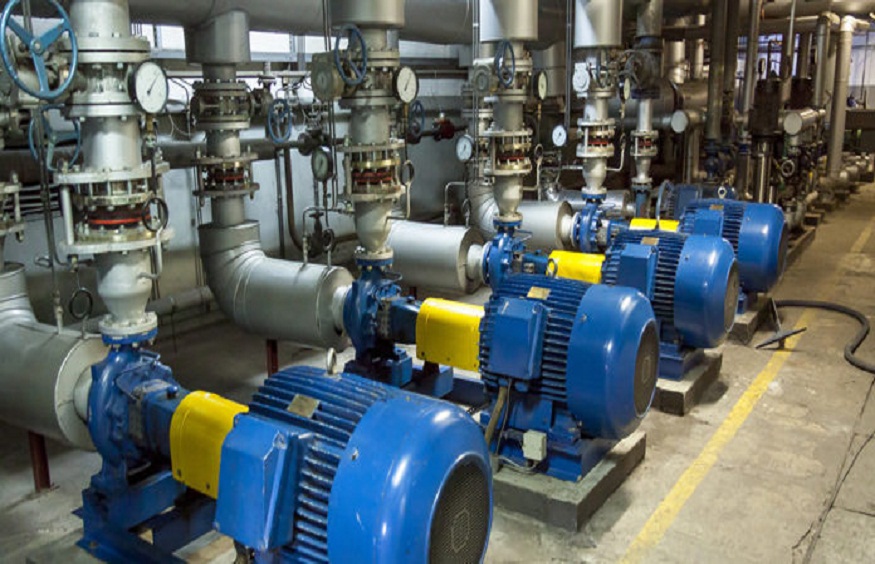Industrial operations often require specialized pumping solutions capable of handling unique materials, temperatures, and viscosities. When it comes to managing challenging fluids, including viscous liquids and high-temperature oils, selecting the right pump becomes a crucial step. In the industrial world, progressive cavity pumps, asphalt pumps, and high temp oil pumps stand out as essential solutions tailored for demanding applications. Each of these pump types has distinct features and benefits that cater to specific industrial requirements.
In this article, we’ll examine what makes progressive cavity pumps, asphalt pumps, and high temp oil pumps ideal choices for different scenarios. From handling challenging materials to ensuring operational efficiency, understanding how these pumps work and their key applications can offer valuable insights for industries seeking reliable and effective pumping solutions.
Progressive Cavity Pumps: Ideal for Handling Viscous and Abrasive Fluids
Progressive cavity pumps, also known as screw pumps, are positive displacement pumps designed to move fluids with high viscosity, shear sensitivity, and solid content. They work by trapping fluid in a series of small, enclosed cavities created by a rotor inside a stator. As the rotor rotates, the fluid progresses from the inlet to the outlet in a continuous, non-pulsating flow. This unique design makes progressive cavity pumps suitable for applications that require precise control over flow rate and pressure, as well as the ability to handle viscous materials.
Key Features and Benefits of Progressive Cavity Pumps
- High Precision and Consistent Flow: Progressive cavity pumps offer a smooth, continuous flow without pulsation, making them ideal for applications where consistency and precision are essential. This feature is particularly useful in dosing and metering systems.
- Excellent for Viscous and Abrasive Fluids: Due to their robust design, these pumps are capable of handling highly viscous and abrasive fluids, including slurries, pastes, and liquids containing solids. Industries such as wastewater treatment, food processing, and oil & gas benefit from their versatility.
- Low Shear Handling: Progressive cavity pumps generate minimal shear force, preserving the quality of shear-sensitive fluids like food products, adhesives, and chemicals. This makes them a preferred choice for applications requiring gentle handling.
- Self-Priming Capability: These pumps are self-priming and can run dry for short periods, which is useful for operations that require start-and-stop functionality or for applications where suction lift is required.
Common Applications for Progressive Cavity Pumps
- Wastewater Treatment: Progressive cavity pumps are frequently used to move sludge, slurries, and wastewater with high solid content. Their ability to handle abrasive materials makes them ideal for wastewater processing plants.
- Food and Beverage Industry: In food processing, these pumps are used to move viscous products such as syrups, sauces, and pastes while preserving their consistency.
- Oil & Gas Industry: Progressive cavity pumps are valuable for moving crude oil, drilling mud, and other viscous fluids in oilfield operations. They can also be used in refineries to pump heavy oils.
Asphalt Pumps: Designed for High-Viscosity, High-Temperature Fluids
Asphalt pumps are specialized pumps used to handle asphalt, bitumen, and other heavy-duty, high-viscosity substances. Asphalt is a challenging material to pump due to its thickness and tendency to harden at lower temperatures. Therefore, asphalt pumps are engineered to work efficiently at elevated temperatures and prevent material buildup.
Key Features and Benefits of Asphalt Pumps
- Ability to Handle High Viscosity: Asphalt pumps are designed to move extremely viscous fluids without clogging. This feature ensures smooth and uninterrupted pumping of asphalt and similar materials.
- High Temperature Tolerance: Asphalt must often be kept at elevated temperatures to maintain its fluidity, and asphalt pumps are built to withstand these high temperatures. They can operate in conditions that might damage conventional pumps.
- Thermal Jacket for Heating: Many asphalt pumps are equipped with thermal jackets that allow steam, hot oil, or electric heating to keep the asphalt in a liquid state during pumping. This feature is essential for preventing the material from solidifying within the pump.
- Durability and Reliability: Designed with heavy-duty materials, asphalt pumps are highly durable and able to withstand abrasive particles, extending their lifespan and reducing maintenance needs.
Common Applications for Asphalt Pumps
- Asphalt Plants: Asphalt pumps are essential in asphalt plants, where they move asphalt to storage tanks, mixers, and applicators for road construction.
- Roofing and Waterproofing: In the roofing industry, asphalt pumps are used to transfer bitumen and other waterproofing materials to applicators. They help maintain the material’s consistency, even at high temperatures.
- Oil Refineries: In oil refineries, asphalt pumps are utilized to transfer residual oil, bitumen, and other byproducts. These pumps handle the thick fluids that remain after the refining process with ease.
High Temp Oil Pumps: Perfect for Handling Heated Oils
High temp oil pumps are specialized pumps designed to manage oils at elevated temperatures. Many industrial processes require oils to remain hot for efficient transfer and application. High temp oil pumps are built to withstand high operating temperatures and ensure a reliable, steady flow of oil under challenging conditions.
Key Features and Benefits of High Temp Oil Pumps
- Temperature Resistance: High temp oil pumps are constructed from materials that can handle high-temperature environments, often ranging from 200°F (93°C) to over 500°F (260°C). This makes them suitable for applications involving heat transfer and hot oil circulation.
- Reliable and Steady Performance: High temp oil pumps provide consistent flow and pressure, even under extreme temperatures. This reliability is essential for applications that require uninterrupted heating.
- Thermal Jacket or Cooling System: Some high temp oil pumps are equipped with thermal jackets or cooling systems to regulate the pump temperature. These systems help prevent overheating and reduce wear.
- Energy Efficiency: High temp oil pumps are designed to be energy-efficient, which is important for industries that require continuous heating operations. Efficient operation translates to reduced energy costs and lower environmental impact.
Common Applications for High Temp Oil Pumps
- Heat Transfer Systems: High temp oil pumps are used in heat transfer systems to circulate hot oil, ensuring even distribution of heat in industrial processes. They are commonly used in manufacturing plants that require precise temperature control.
- Chemical Processing: In the chemical industry, high temp oil pumps are essential for processes that involve high-temperature reactions. They provide the necessary heat for reactors, distillation columns, and other equipment.
- Food Industry: Some food processing applications, such as frying and baking, require heated oil for consistent cooking results. High temp oil pumps help circulate cooking oil at the required temperature to maintain food quality.
Choosing the Right Pump for Industrial Applications
Selecting the right pump type for a particular application requires careful consideration of the fluid properties, temperature requirements, and specific operational demands. Progressive cavity pumps, asphalt pumps, and high temp oil pumps each serve unique purposes, so understanding their distinct advantages is essential for making an informed choice.
Factors to Consider When Choosing a Pump
- Fluid Viscosity: The viscosity of the fluid plays a significant role in determining the appropriate pump. High-viscosity fluids, such as asphalt and oils, require specialized pumps designed to handle thicker materials.
- Operating Temperature: Temperature requirements are crucial when choosing a pump. For applications involving heated fluids, high temp oil pumps or pumps with thermal jackets may be necessary.
- Flow Rate and Pressure: Different applications require specific flow rates and pressures. Progressive cavity pumps are ideal for low-flow, high-pressure applications, while asphalt pumps may be better suited for high-flow requirements.
- Durability and Maintenance: Depending on the application, you may need a pump that can withstand abrasive particles and high stress. Choose pumps built from durable materials that offer minimal maintenance needs.
- Energy Efficiency: Energy-efficient pumps can reduce operational costs and environmental impact. Look for pumps that offer optimal performance with minimal energy consumption.
Optimizing Industrial Efficiency with Specialized Pump Solutions
Industrial pumps like progressive cavity pumps, asphalt pumps, and high temp oil pumps play essential roles in managing complex fluid handling needs. From moving viscous substances to handling high-temperature oils, each type of pump offers distinct features that make it invaluable for specific applications.
Choosing the right pump for your industrial needs not only enhances operational efficiency but also reduces maintenance costs, energy consumption, and downtime. By understanding the unique benefits and applications of each pump type, industries can make informed choices that lead to smoother operations and improved productivity.
Investing in the right pumping solutions can significantly impact the effectiveness of industrial processes, making specialized pumps an integral part of maintaining a high-performing and cost-effective operation.

